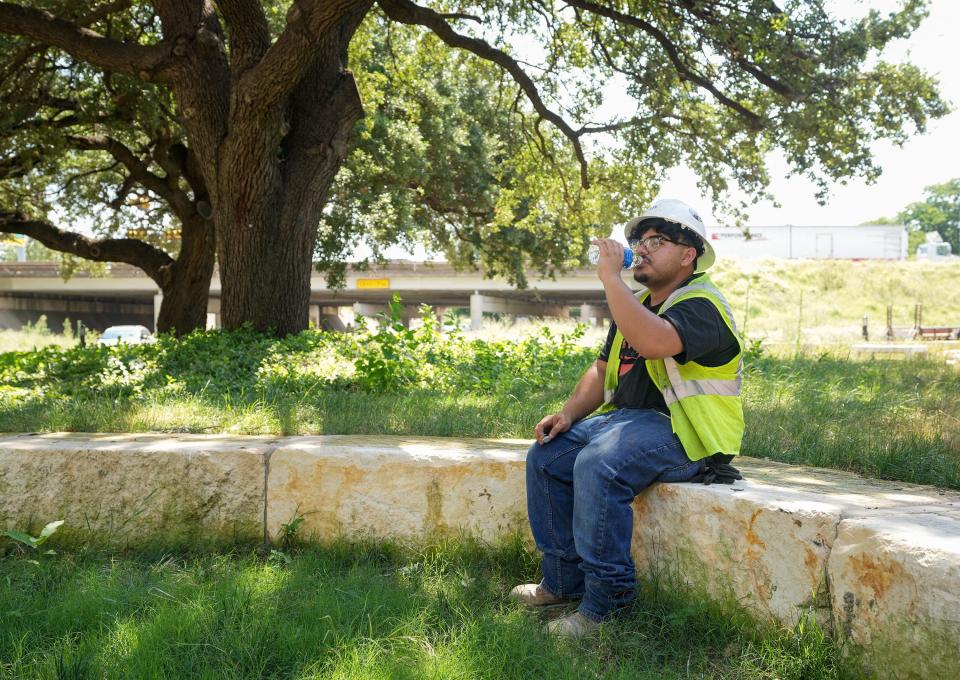Austin City Council to meet with legal counsel about Texas 'Death Star' bill
The Austin City Council is set to discuss “legal issues” involving recently passed legislation that limits the power of local governments during a closed session Tuesday, according to the council agenda.
Called the “Death Star” bill by both opponents and supporters, House Bill 2127 would make many local ordinances unenforceable by cities, such as mandated water breaks for workers and eviction protections for renters. The new law will take effect Sept. 1.
The July 18 meeting comes just a few weeks after the city of Houston filed a lawsuit against the state to have the bill declared unconstitutional, void and unenforceable.
"The Austin City Council will meet in July to discuss the ramifications of HB2127 - which appear to be sweeping - and the City’s options going forward," a city spokesperson said in an email to the American-Statesman. “We think the Houston lawsuit does a good job of outlining the legal issues with the bill."
Texas Senate OKs HB2127. How counties, cities would be restricted.

Houston lawsuit
The city of Houston in early July filled a lawsuit citing the constitutionality of HB 2127 as a major concern.
“HB 2127 would effectively repeal Texas constitutional home rule, impermissibly expand the scope of state preemption of local law, and improperly shift the burden of disproving preemption to cities, in direct contravention of article XI, section 5 of the Texas Constitution and decades of the Texas Supreme Court’s preemption jurisprudence,” the lawsuit says.
In a statement, Houston Mayor Sylvester Turner said the legislation “reverses over 100 years of Texas constitutional law” without amendment.
“Because Texas has long had the means to preempt local laws that conflict with State law, HB 2127 is unnecessary, dismantling the ability to govern at the level closest to the people and therefore punishing all Texas residents,” Turner said. “Houston will fight so its residents retain their constitutional rights and have immediate local recourse to government.”
A GOP bill could undo local laws. Here's why some disagree on its impact.
How HB 2127 would affect Austin
HB 2127, formally known as the Texas Regulatory Consistency Act, repeals much of the power local municipalities have to enforce or create ordinances that contradict or are not outlined in Texas law.
Cities in Texas currently have the authority to regulate matters that the state doesn't address. Under HB 2127, the power of cities and counties is diminished, and local ordinances that are found to be in violation, or are already addressed under state code, will be void and unenforceable.
In Austin, that would mean local regulations on evictions, mandated water breaks for workers and other local ordinances would become unenforceable by the city.
The bill's authors, Sen. Brandon Creighton, R-Conroe, and Rep. Dustin Burrows, R-Lubbock, touted the proposal as a way to end a "compliance nightmare" of business regulations across the state, pushing back on concerns that state officials, who are only able to legislate every other year, are not in a position to appropriately and efficiently govern cities and counties on a regular basis.
While cities will still be able to handle routine municipal issues under the legislation and enforce local rules regarding noise, overgrown lawns, fireworks and towing, among other routine matters, the bill signed by Texas Gov. Greg Abbott in June does further subject cities to fall under rules addressed under each of the state's eight codes of law: agriculture, business and commerce, finance, insurance, labor, natural resources, occupations and property.
Burrows has said the legislation, which does not affect local governments' municipal zoning or tax collecting authority, originated after the Austin City Council attempted to institute a paid sick leave ordinance in 2018 that would have forced most private employers in the city to offer paid sick leave to their workers. The law never took effect as it was ruled unconstitutional.
Under the iteration of the bill that will take effect in September, a late amendment will allow for local protections against predatory lending practices to remain active if they were put in place before 2023.
However, as that exception was a welcome addition for those hesitant to support the bill, another amendment tacked on late in the process will prohibit localities from putting in place protections to prevent or delay evictions.

This article originally appeared on Austin American-Statesman: Austin City Council to discuss legal issues of Texas 'Death Star' bill

